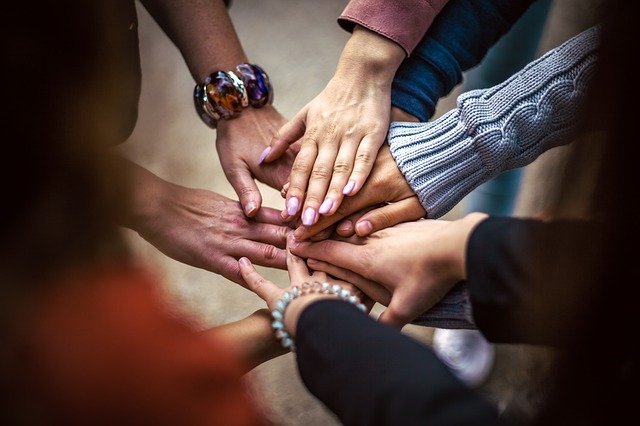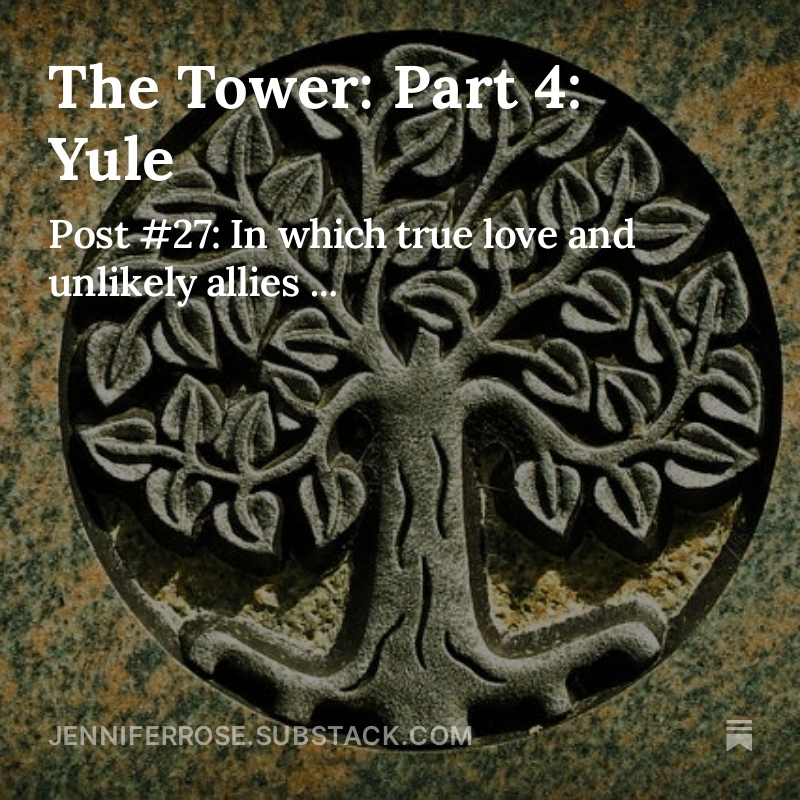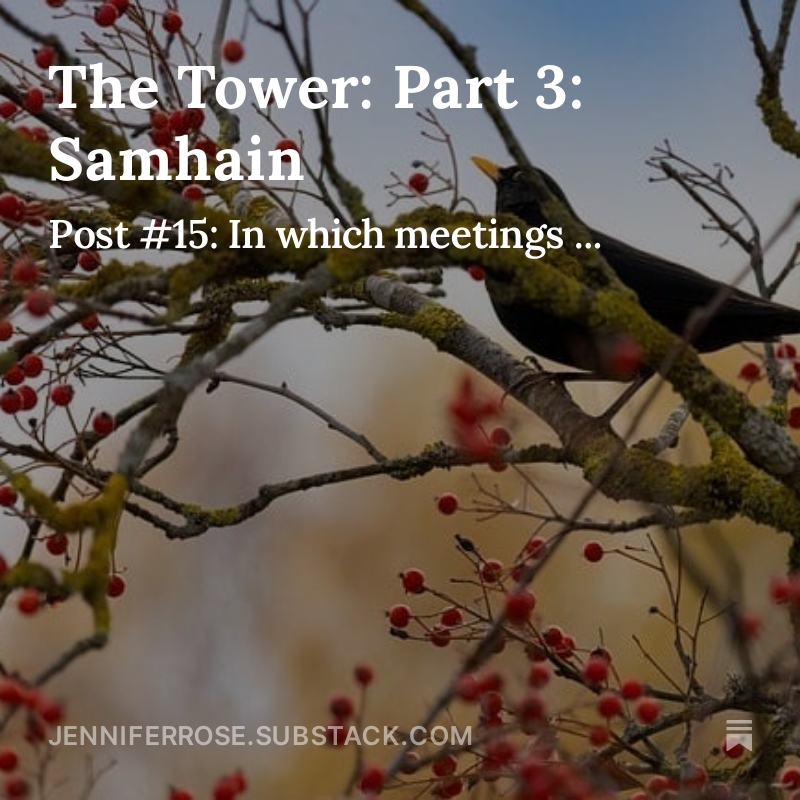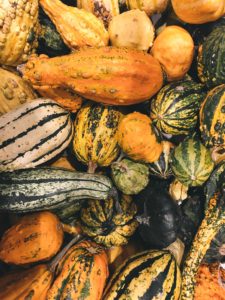by Jenny Rose | Mar 22, 2018 | Power
Resilience is “the capacity to recover quickly from difficulties.” (Oxford Dictionaries.) One of the most prevalent difficulties in modern life seems to be the ever-growing cacophony of Those Who Are Offended. I’ve been thinking about this for some time, but last week I read an interview with author Lionel Shriver that brought my own sense of offense to a head. Here’s a quote from that article:

Photo by Syd Wachs on Unsplash
“Shriver … is not the first to argue that the right to give offense is one of the very foundations of freedom of speech. ‘We’re moving in the direction of enshrining the right not to be offended, which is the end of liberty and certainly the end of good books.'”
Oxford Dictionaries defines offense in four ways:
- A breach of law or rule; an illegal act.
- A thing that constitutes a violation of what is judged to be right or natural.
- Annoyance or resentment brought about by a perceived insult to or disregard for oneself or one’s standards or principles.
- The action of attacking someone or something.

Photo by David Beale on Unsplash
The principle of free speech is taking a real battering in the United States. It’s a one-size-fits-all justification for whatever beliefs and ideologies we espouse. Freedom of speech, however, is not absolute. There are limitations around it intended to protect community and individual rights, including the “offense principle,” a restriction based on perceived offense to society. Freedom of speech is a principle that relies on social guidance, which is to say the intelligence and compassion of us, we the people.
This is a problem in a nation where compassion is daily more distorted and taken advantage of and critical thinking and civil discourse are increasingly difficult to come by. Who gets to define “perceived offense to society?”
Everywhere I look, listen and read, I observe people who appear to believe they have a right not to be offended. Freedom of speech grants such people the right to be offensive, as they’re quick to point out, but it’s only a one-way street. Offensive ideas and beliefs are becoming a broad category. Disagreement is offensive (and hateful and bigoted). Certain words, like ‘uterus’ are becoming offensive. Certain pronouns are offensive. Real or perceived exclusion is offensive. A perception of cultural appropriation is offensive. Identity politics of any sort are offensive. Science and evidence-based thinking are offensive. Name any religion or spiritual framework you like — it’s offensive.
When did we become so precious, infantile and entitled that we stopped dealing effectively with being offended?
When did the cancer of selfishness destroy our willingness to consider the needs of those around us?
When were individual distorted perceptions given power over a larger, more common good?
When did disagreement, questions and citing scientific data begin to earn death threats?
Our social, cultural and political landscape is enormously complex, at least at first glance. We’ve become fantastically and gleefully skilled at silencing, deplatforming, invalidating, gaslighting, projection and the fine art of withering contempt. We suffer from an epidemic of what I call Snow White Syndrome. Remember the wretched queen stepmother and her mirror? “Me, me, ME, not you! I’m the fairest, I’m the best, I’m the most victimized, I’m the most downtrodden, I’m the richest, I’m the most offended!”
At first glance, as I said, it’s all so complex. At second glance, it’s all distraction and bullshit. The bottom line is always a power dynamic. Is an individual or group requesting or demanding power-with or power-over?
It really is that simple.
I’m offended every single day. School shooters offend me. Tantruming and pouting politicians offend me. Silencing tactics offend me. Being forced to deal with the sexual fetishes of others offends me. The list goes on and on. You know who’s responsible for dealing with all this offense?
Me.
It’s not your responsibility to refrain from offending me, and it’s not my business to tippy-toe around your delicate sensibilities, either. Many of us try to approach others with kindness and courtesy, but that doesn’t mean we’ll receive either in return. I don’t expect the world to accommodate me. Life is not fair. Equality is an ideal rather than a reality. Inclusivity is not a right.
My rights and needs are as important, but not more important than anyone else’s.

Photo by James Pond on Unsplash
Individuals and groups who lobby to take away the rights of others work from a power-over position. They’re weak and fearful and use violence and intimidation to distract others from their impotence. Individuals and groups who lobby to create more equal power dynamics work from a power-with position. They’re confident and seek authentic connection through information sharing and constructive contribution toward the well-being of all.
Resilience, not priggish rigidity or sheep-like agreement with the prevailing social fashion, always wins the evolutionary jackpot. Resilient life flexes and bends, masters new environments, learns and successfully reproduces, continues. Life that doesn’t dies. Evolution is not personal. It makes no distinctions between a human being and a cockroach. Evolution has a lot of time, millions upon millions of years. The ebb and flow of species on earth is nothing but ripples. Patiently, intelligently, life begins again, over and over, building its complex web.

Photo by Biel Morro on Unsplash
If we can’t figure out how to live in harmony with our bodies, our communities and the earth, we will be deselected. Walking around with a mouth like a pig’s bottom because we’re offended, mutilating and poisoning our bodies, creating sexual pathology that interferes with our ability to reproduce our DNA, wasting our time and energy engaging in idiotic arguments and eradicating education and critical thinking will all lead to deselection, and it should. Such a species is more destructive than constructive to all the other forms of life on this planet.
Difficulties of all kinds are a given. They always have been. Difficulties are the pressures that shape us and make us stronger — or deselect us. If we want to survive, we need to put aside our offended sensibilities and concentrate on the things that contribute to the stuff of life: food, water, shelter, connection, raising healthy children, our physical and mental health and the well-being of Planet Earth. It seems to me that’s enough to be going on with. If we can’t begin to achieve resilience, the debate over who gets to use which bathroom becomes as moot as it is ridiculous.
Resilience can be learned. We foster it by letting go, learning to be wrong, exercising our intelligence, and forming healthy connections so we can learn from one another, figure out how to share power and support one another. Life was never advertised as a free ride. The privilege of life comes with responsibility, demands and competition. Taking offense is not a life skill. Malignant destruction of life, either our own or somebody else’s, is not a life skill. Taking our proper place in the food web and the natural cycles of life and death, on the other hand, is essential if we expect to continue as a species.
Life, in the end, is for those sensible enough to live it, and part of surviving and thriving is resilience. Maybe, if we can get a grip and refocus on what matters, we can learn from the cockroaches, viruses, bacteria, mice, flies, ants, crows, soil organisms and many others that have figured out how to adapt and evolve through every difficulty they encounter.
Offended? Get over it.

Photo by Jonathan Simcoe on Unsplash
All content on this site ©2018
Jennifer Rose
except where otherwise noted
by Jenny Rose | Aug 3, 2024 | Connection & Community, Emotional Intelligence
I received some second-hand feedback regarding my last post that’s had me thinking further about this idea of taking one’s own breath away.
We exist as individuals, and we also exist in relationship to others, and not only with our own species. In fact, as I reread the last statement, I realize it doesn’t quite reflect reality. We think of ourselves as discrete, separate individuals. “I.” “Me.” Yet it would be more accurate to say “we” and “us,” for we are each a world of microorganisms, internally and externally. Without all these bacteria, fungi, and other tiny organisms we couldn’t live. They facilitate everything from our digestion to our skin and mucous membrane health.

Photo by Helena Lopes on Unsplash
The point remains; however, we are each a part of ever-enlarging communities, from micro to macro. Oxford Online Dictionary defines ‘community’ as a group living in the same place or having specific characteristic(s) in common. A second definition is a “feeling of fellowship” with others because of common values, goals, and beliefs.
Community, in other words, is a fundamental human experience and shapes us in myriad ways. We are a social species; we need one another. I’ve been fighting with that reality all my life.
I believe much of our journey in life is about managing the continuum between narcissism (grandiose sense of self-importance, lack of empathy for others, need for excessive admiration, belief that one is deserving of special treatment) and echoism (a fear-driven compulsion to prioritize others’ needs).
That unwieldy balance necessarily takes place within the inescapable context of community.
It’s complicated.
We all know communities vary. Most of us acknowledge being part of several communities. Often our identities are inextricably bound with community membership, in the case of religion or family, for example. These bonds are very strong.
As I think about and participate in communities, I think about health. Am I healthy enough to function effectively and appropriately in my community? Is my community a healthy place for me?
Community is both a mirror and a crucible. Communities formed as social bubbles and echo chambers can be deeply comforting and validating. Everyone is like us. Everyone believes what we believe. We experience no discomfort or friction. We’re assured of our rightness, our clarity, our moral ground. We know the Truth. We never have to reconsider, find out we’re wrong, grow, learn new things, or change. We stand on solid ground and look into mirrors reflecting us exactly as we want to be seen.
Communities formed as crucibles, such as work, volunteer groups or neighborhood groups, are not so comfortable. In these communities we will experience conflict and friction. Everyone does not share our values and beliefs. Because everyone is not the same, we get glimpses of parts of ourselves we’d rather not see or have seen by others. We can’t hide our flaws and weaknesses, mistakes and missteps. We receive various kinds of feedback. We feel defensive, exposed, ashamed.

Photo by Cristian Newman on Unsplash
Crucibles are cradles for alchemy and change. They trigger our old traumas and shames without notice. They bring us face to face with ourselves and relentlessly demonstrate the effect of our behavior on others.
I observe that people who primarily interact in mirror communities are often black and white in their thinking. You’re for us or against us. You’re Us or you’re Them.
This kind of thinking strikes me as silly and unintelligent. The older I get, the more shades of grey I discover. Accepting shades of grey, however, is a lot more interpersonal and personal work than black or white labels. Shades of grey mean we have to think carefully about what we value and believe and why. We might have to defend our views. We might ask or be asked uncomfortable questions. Others might become annoyed, offended, or hurt by our position. People might try to make us small and silent, or fit us into a box so they can feel more comfortable with us.
We might let them.
I have often let them. And that’s about my own health. Healthy crucible communities empower rather than disempower; empowerment brings responsibility. A responsibility to be the healthiest and most whole person I can be. A responsibility to practice tolerance and respect towards myself and everyone around me. That means I’m responsible for my boundaries, my integrity, and my resilience.
The health of individuals in the community directly correlates to the health of the community itself; I don’t want to be the limiting factor in any community I’m a part of.
Striving for increased health and wholeness is a practice rather than a destination. Some days I feel like a shattered mess that can never be mended or healed. Other days I feel like a good-enough person, or maybe even a little better than that. I care about the people around me. My challenge is to care about myself equally, to hold my needs as important as those of others, to attend to my own well-being before becoming absorbed in caring for others. I don’t believe this makes me a narcissist, but it does move me away from echoism. People who view my behavior as narcissistic have perhaps benefited from those who, like me, have poured themselves out into others with no thought or responsibility for themselves.

Image by Bob Dmyt from Pixabay
I am fortunate to have a true healthy community; the first I’ve ever participated in with any degree of authenticity and vulnerability. My greatest fears have been realized, more than once. I am seen a great deal more clearly than I wish to be. I am cared about, a very uncomfortable state of affairs. When I make mistakes or my judgment is poor, everyone sees, everyone knows, and it feels disastrous. I am frequently uncomfortable because some of my belief systems and lifestyle choices are different from those around me.
The same is true for everyone in my community. We see each other, and we make room for each other with affection, humor, and occasional irritation that only underlines our caring.
I’m not embedded in a mirror, but in a crucible, and I wouldn’t choose differently. As uncomfortable (terrifying) and messy and even humiliating as it sometimes is, my interaction in my community is making me a better person in every possible way; I see myself in a community context in ways I never would alone or in a mirror community. My community expands my humility, forces me to become more resilient, pushes my boundaries, and teaches me that what really matters is friendship and respect, not lifestyle choices and differing belief systems.
Every day I take things I’ve learned in my community and turn them over, sometimes cry over them, figure out how to grow and change and be more effective. I do it for me … and for them. I do it because it’s a challenge, it’s fascinating, it’s growthful, and I don’t want to be part of a mirror community. I like diversity, as uncomfortable as it can be. Diversity makes me bigger and wiser.
The phrase “the public eye” is so amorphous as to be useless. I’m not concerned with what the stranger on the street thinks of me, if indeed they spare a thought for me at all. But I do care what my community thinks of me, because I know I’m valued for myself, imperfect and weird as I am. I trust them enough to allow them to help me grow. I don’t feel pressured to be like any one of them; rather the pressure is to be the best version of myself possible, which is exactly what I want for them.
The best versions of myself take my own breath away now and then, the root of my last post.
Healthy community is absolutely essential for all of us, in my view. So is the ability to self-reflect and accept ourselves with love and grace. I want to respond to those around me with tolerance and respect, and I learn to do that best as I practice tolerance and respect with myself. As I see myself more clearly and kindly, I see others more clearly and kindly. As I foster my own growth and change, I can better foster the growth and change of those around me.
Healthy communities depend on healthy individuals, or at least communities committed to health need individuals committed to their own health. That’s what works. Neither echoism nor narcissism build health or growth of any kind for anyone.
Questions:
- Name three communities you feel a part of. Is each one more of a mirror or a crucible?
- Which of your communities feels most healthy? Least healthy?
- What do you find hardest about being in community?
Leave a comment below!
To read my fiction, serially published free every week, go here: 
by Jenny Rose | Apr 27, 2024 | A Flourishing Woman, Mind
A few weeks ago I explored self-trust. Until I wrote that piece, I had not realized how deeply I distrusted myself. (As a writer, I find nothing clarifies my thinking better than written inquiry. The process uncovers so many unconscious and hidden things.)
In that post I speculated about choosing to trust myself, as trust is a belief, and beliefs can and do change. I thought it would be interesting to consciously trust myself for a few days and see what happened.
What has happened is a profound change in my interior life and my mental health. What happened is the realization that learning to self-love, while a healing and valuable practice, was not, after all, what I most needed.
This still seems strange to me. We are certainly taught love is the greatest feeling, the closest to the Divine we can come, the best we can be as human beings. We define love endlessly, discuss it, long for it, search for it, tell ourselves it will fix everything if only we can find someone to love, if only someone will love us completely, unconditionally, forever and ever (or at least until death do us part), amen.
But my experience has taught me love is changeable and elusive. All kinds of abuse masquerades as love. We don’t all mean the same thing when we express love.

By Marianna Smiley on Unsplash
Perhaps most heartbreaking of all, we don’t always value the love that comes our way, and we may learn to distrust it. Every master manipulator in the world recognizes the power of our need for love. Once that need is used against us, we are on our guard against love.
Love hurts. Love can endure, but a withered, starving love living on memories and perhaps based on delusions or the simple call of blood is a desolate ghost haunting our hearts. Love can scar us so deeply we’re never the same.
The daily practice of loving oneself is less complicated than loving another. At the very least, I know what I mean when I say it to myself, and my self understands my demonstration of it. Nothing is lost in translation. I can trust my own love.
And there’s that word – ‘trust’. Trust and love: does one require the other, or are they separate? One is a feeling (love), and one is a belief (trust). Both can be manipulated. In terms of our love and trust of ourselves, both are highly subject to interruption or even amputation by those who influence us, especially as children. If we are repeatedly given to understand we are not lovable or not to be trusted, we internalize those beliefs before we even have language. We don’t learn to love and trust ourselves.
Internalized beliefs are enormously powerful right up until we examine them closely, at which point they can vanish like a wisp of smoke. Once we’ve seen them as false, we become conscious of their pervasive influence and our internal structure changes in astounding ways.
This is what has happened to me.
When I set out to live a few days consciously trusting myself, I realized within an hour my obsessive and unending loop of review and preview. Just like a fish in water, I have no memory of ever living any other way, so I never noticed it before. Well, that’s not true. I noticed it, I just called it anxiety. As I’ve always been anxious and expected I always would be, I didn’t think further about it.
In an example from my childhood, when I was very young, kindergarten age, my mother had a lot of pain and was quite unhappy. I had a younger brother and we had cats and dogs. In an effort to take care of my mother, I learned how to do things like make beds, sort laundry, set up the coffee maker, make orange juice in the blender (frozen concentrate), take care of the animals, tie my own shoes and teach my brother to tie his, etc.
I vividly remember lying in my bed, my brother across the room in his bed, reviewing everything I’d done that day. I had trouble with hospital corners on the beds because I wasn’t strong enough to tuck the sheets in properly under the mattress. Mom had to bend over and do them again, so I failed to help and caused her pain. I didn’t turn a sock right side out when I sorted the laundry. I could tie my own shoes, but I was baffled trying to teach my brother to tie his while facing him. And so forth and so on.
Review: I hadn’t done it right. I hadn’t helped. I hadn’t been perfect. I hadn’t made Mom happy. I had to do better. Preview: Next time I would look at every piece of laundry, be sure nothing was inside out. Next time I would remember how to sort it properly so Mom wouldn’t have to bend down and do it herself. Next time I would figure out a way to get the hospital corners right, but I wouldn’t have to face that again for a week or so. Maybe I’d be stronger or bigger? If I got behind my brother and tied his shoes from that angle, could I do it? I had to do it! It hurt Mom to bend down.
This habit, this ongoing internal review and preview, has never stopped. Whatever I’ve just done, I review it. Whatever I’m about to do, I preview it. Racing thoughts. Circular thinking. Problems with sleep and chronic tension. Adrenal overload and exhaustion. The need to distract, to make it stop. The inability to have a quiet mind. Most of us are familiar with the symptoms of anxiety.
I believe my anxiety has been rooted in my self-distrust. When I decided to behave as though I do trust myself, I became conscious of my lifelong review and preview habit, as much a part of me as my blue eyes. At the same time, I discovered the solution. The minute I catch myself either reviewing or previewing, and it’s many, many times a day, I say, “I trust you,” to myself.
And I stop. I don’t need to review. I don’t need to preview. I did the best I could, because I always do that. I’ll do the best I can, because I always do that.
“I trust you.”
I’ve also realized, after long experience of sorting through my own psyche, this self-distrust is not mine. It doesn’t smell like me. It’s not home grown. It came from someone outside me, like so many of the unmanaged, unacknowledged emotions and beliefs I’ve carried, recognized as not mine, and let go.

By Danijel Durkovic on Unsplash
I discovered, as I wrote that post on trust, I do trust myself. I’ve always had cognitive dissonance around trust. Those around me didn’t trust me, yet I trusted myself. I trust my intuition. I trust my empathy and sensitivity, I trust my intention to do the right thing, I trust my flexibility and my ability to learn. I trust my ability to love. I trust my ability to think critically and recognize the truth, no matter how unwelcome. When I assure myself of my trust, it’s not a lie. It’s a truth buried for years under trauma.
I suspect many of us review and preview, consciously or not. It’s wholly ineffective in terms of healthy functioning. It makes us less flexible and resilient. It tires us out, creates long-term chronic stress, and is a constant no-confidence vote we give ourselves. It doesn’t make us more perfect; in fact, it does the opposite because it encourages us to be brittle and fearful. It doesn’t stop us from making mistakes. It turns us away from presence and authentic expression and towards behaving like automatons with a rigid script.
It gives us anxiety.
Most of all, reviewing and previewing doesn’t keep us safe. It doesn’t help us feel loved.
The compulsive habit of reviewing and previewing took up an extraordinary amount of space in my mind and required enormous quantities of energy and attention. Without it, I feel an internal spaciousness I’ve never had before. I read more. I write more. I can rest and relax. I’m far less driven, far more comfortable in my own skin. I’m more present and mindful in the moment, and with my feelings and my body.
I’m far less anxious.
Learning to love myself has been a gift. Reclaiming trust in myself has changed my life.
Questions:
- Do you love yourself? If not, why?
- Do you trust yourself? If not, why?
- If you could only have one, would you prefer others to trust you or love you?
- What do you think is more important socially: love or trust? Why?
Leave a comment below!
To read my fiction, serially published free every week, go here: 
by Jenny Rose | Nov 19, 2022 | A Flourishing Woman, The Journey
I was taught, as a child, it was my job to alleviate distress. One must always respond immediately and help the sufferer. It went far beyond duty and obligation. If I did not fix the distress of others, my childish world would fall apart. Everyone would leave.

Photo by Cristian Newman on Unsplash
For a child, such consequences are death.
I was also taught “help” meant doing anything and everything I was asked to do, immediately, unquestioningly, and unendingly. My own distress was of no consequence at best and a direct threat, an unwelcome competition, at worst.
That core teaching stayed with me as I grew up, and has been a keynote of my behavior and experience most of my life. I wanted to help people. When people around me suffered, I felt an overwhelming, painful panic, as well as complete responsibility. I had to do everything I could, give the situation my all in order to “help.”
I also grew up with an inability to respond to my own distress. Hunger, thirst, fatigue, emotional and physical pain, were all ignored. My disconnection from my own needs and experience led me into chronic pain, eating disorder, depression, and anxiety. I was unaware of my traumatic wounds. I had no interest in helping myself. Helping myself was selfish, bad, and unloving.
Then I studied emotional intelligence and all the work and therapy I’d done over the years with guides and teachers as well as on my own (see my Resources page) wove together into an intention to reclaim my health and my self.
This blog has been a key part of that work.
I still don’t like to watch people suffer, but I’m more careful now about “helping.” I’ve learned suffering is not necessarily the enemy. We get ill, have painful emotional and physical injuries, have uncomfortable feelings. We age and our bodies and sometimes our minds wear out. To be human is to experience these things; they’re inescapable. We can’t control what happens to us, but we can control how we deal with such events. When someone is suffering, I’ve learned to be less reactive, to remember it’s not my fault or my responsibility to fix it. I’ve learned to notice whether the sufferer is helping themselves before I jump in.

Photo by Joshua Earle on Unsplash
I have learned a bitter lesson: No one can help someone who will not help themselves.
I realize now we can’t always go back to where we were before we were wounded; we can’t always heal the wound itself. Sometimes our wounds and suffering are taking us into something new and what’s called for is not healing, but tolerance and patience.
What does “help” mean? This is an important question. Does help mean we respond promptly to all demands, whether or not they are safe, sustainable, or even possible? Does help mean we make thoughtful, intentional choices for safety and practicality even if those choices go against what we are being asked to do in terms of “help?” Do we decide what the best “help” is, or does the sufferer get to choose what kind of “help” they want?
I’m still uncomfortable talking about my own pain. Honestly, I’m still uncomfortable even noticing it, but I practice every day at staying present with how things are with me. It feels selfish and wrong, but I know that feeling doesn’t mean it is selfish and wrong, just that it’s very different from my early training. Sometimes the choice that feels worst is the best choice. Sometimes suffering is the only possible road forward into peace, growth and resilience.
None of us has the power to help anyone avoid suffering. I confess I’ve argued with that reality all my life, but it hasn’t done a bit of good. In fact, it’s done harm, most of all to myself.
I have occasionally, in the depths of anguish, asked for help. When I do that, what am I asking for?
Nothing tangible. Not money or a thing. Not love. Not sex. Not a gallon of ice cream. I’m not asking for someone to come along and fix it all, or take responsibility.
I’m asking to be heard. I’m asking for someone to say, “I’m here. You’re not alone. I believe in you. I know your goodness, your strength, your courage.” I’m asking for a safe place to discharge my feelings. This might involve snot, wet Kleenexes, rage, and a raised voice.
A safe place is not a place where someone else takes responsibility and fixes, or asks me to stop feeling my feelings, or is clearly uncomfortable with my suffering. A safe place is provided by someone with healthy boundaries who is willing to witness my distress without feeling compelled to fix it.
Witness. A witness. That’s ultimately what I want. Just someone to be there with me for a little while. I can face my own demons and challenges, but I can’t do it all alone.

Photo by Gemma Chua Tran on Unsplash
None of us can. We are social animals. But we can witness for one another. We can sit quietly, holding a safe space without judgment or a fix or advice, and just witness. Pass the Kleenex.
It’s the hardest thing in the world for me to do. Simply witnessing seems so passive, so weak, so useless. Someone right in front of me is deeply distressed and I simply sit like a bump on a log witnessing? Are you kidding me?
Surely, I can do better than that. I can do more than that. It’s up to me to make their suffering stop!
And yet. And yet. Isn’t finding a witness incredibly hard? How many people in our lives can take on such a role? What an inestimable gift, to be willing to walk beside someone who is suffering, to be willing to stay, to not look away. What if our boundaries were so healthy we could do that? What if we weren’t afraid of suffering? What if we were wise enough, strong enough, to make room for it and sit down beside it?
Someone I love is in great anguish of spirit. They beg me for help, but a very specific kind of help which is ethically and practically impossible for me or anyone else to give. Which makes me an enemy. Which makes my loved one even more alone than they already feel, more victimized, more powerless, more confused.
There is nothing about this that doesn’t suck. I dread the phone calls beyond words because I don’t want to witness this suffering. It feels unbearable. But my loved one must bear it, and if they have to, I can. I choose to witness. It feels like nothing. It’s not what’s wanted. But at this point it’s all I can do. So I will keep calling and answering calls. I will get up in the morning and talk to case managers, nurses, CNAs, palliative care consultants, nursing homes, and whoever else will talk to me. I will update friends and family. Then I will get up the next morning and do it again.
I pray there is some power in witnessing, some rightness. I pray that somehow my love and willingness to remain a witness does a little bit of good, provides some small comfort, lights a candle in the darkness of dementia, even for a moment.
And I search inside my own suffering for wisdom, for healing, for grace, and for faith.
To read my fiction, serially published free every week, go here:
by Jenny Rose | Oct 1, 2022 | Connection & Community, Emotional Intelligence
What happens when we disagree?
Not if we disagree, but when. Because we will always disagree eventually. Always.

Photo by roya ann miller on Unsplash
Is that bad?
It depends who you ask!
Disagreement, or lack of consensus, is going to happen whenever two or more of us are interacting. Why, then, has it become so risky, this perfectly normal opportunity to show our work or learn another point of view? Why are we so insecure we can’t tolerate the slightest disagreement? Are our egos so fragile we can’t stand to be wrong or rethink a position? Does our fear of moral condemnation outweigh our ability to consider ideas and information (facts) clearly and critically and speak honestly about our conclusions?
When did differing opinions become a matter of hate and violence, and speaking our truth start leading to such brutal consequences?
Do we no longer understand how to agree to disagree?
Will authoritarianism ever lead to true agreement, or is the best we can hope for a sullen silence and mandated obedience?
(Don’t forget the French revolution.)
Certainly, it appears more and more people value power over truth, rigidity over resilience, and mindless agreement over genuine collaboration and teamwork.
If we must be in agreement all the time, there’s no hope of true cooperation and we each remain locked in our own narrow impoverished bubble, interacting only with those whose bubbles look exactly like ours. Except I don’t know of anyone who has exactly the same bubble as another. But then we’re experts at constructing believable facades.
Insisting on 100% agreement all the time guarantees cultural collapse. We can’t do it. We’re not made that way. It’s a social dead end for humanity. We cannot thrive or even survive without a healthy complex social system among our own kind as well as with countless other forms of life.
The friction of disagreement, of difference, is essential. It keeps us flexible and demands we exercise our learning and listening skills as well as use our imagination and empathy. Disagreement is a sign of respect and caring, both for ourselves and our point of view and experience, and for others. If we care enough to disagree openly and peacefully, we’re signaling our willingness to make an authentic commitment and contribution. We’re not sitting back accepting brainwashing passively, but actively participating and engaged, examining, exploring, and asking questions about whatever is in our attention.
At least some of us are.
Others demand an environment of complete agreement with no questions asked. Heavy social penalties occur if someone steps out of line. There is no negotiation, no cooperation, no discussion, no new information or showing of work. You will agree and obey. Or else.

Photo by James Pond on Unsplash
Fortunately, we humans have a wide rebellious streak, some more than others. Certain people are never going to sit down and shut up. Certain people do not worship the status quo, especially if it doesn’t serve the majority. These folks disagree, and they say so. They provide information (facts) to back up their point of view. They ask inconvenient and uncomfortable questions. They shine the clear light of critical thinking on issues and ideology.
They don’t drink the Kool-Aid.
Disagreement does not need to be a call to arms. It’s not hate. It’s not disrespect or intolerance. It’s not prejudice or bigotry. It doesn’t mean we have to cut perfectly healthy relationships out of our lives. Disagreement is a chance for connection and an expanded empathy. It’s an opportunity to learn. Disagreement is a sign of diversity, and a diverse system is a healthy one.
A system in which disagreement is forbidden cannot thrive, adapt, and grow. It’s brittle and stunted, just like the scared, shriveled human beings controlling it.
Want peace? Want tolerance, justice, and respect? Learn, demonstrate, teach, and support the kind and gentle art of disagreement.

Photo by Brigitte Tohm on Unsplash
















